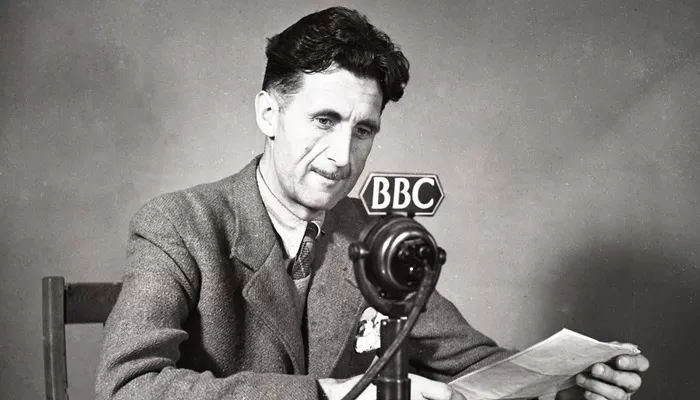George Orwell, born Eric Arthur Blair, is widely regarded as one of the most influential British authors of the 20th century. His works, characterized by lucid prose and insightful social commentary, have left an indelible mark on literature and continue to resonate with readers worldwide. In this article, we will explore Orwell’s life, his contributions to literature, and the enduring relevance of his works.
Early Life and Education
Eric Arthur Blair was born on June 25, 1903, in Motihari, Bengal, India, to British parents. His father, Richard Blair, worked as a civil servant in the Indian Civil Services, while his mother, Ida Mabel Blair, was the daughter of a tea planter. At the age of one, Blair moved with his mother and sister to England following his father’s return to Britain.
Blair won scholarships to two of England’s leading schools, Wellington and Eton. He briefly attended Wellington before continuing his studies at Eton from 1917 to 1921. At Eton, he began to develop his writing skills, publishing his first pieces in college periodicals. Instead of pursuing university education, Blair joined the Indian Imperial Police in Burma in 1922, following family tradition. His experiences in Burma later influenced his writings.
Transition to Writing and Adoption of the Pseudonym
In 1927, Blair returned to England on leave and decided not to return to Burma. He immersed himself in the lives of the poor and outcast, living in London’s East End and Paris’s impoverished quarters. These experiences culminated in his first book, “Down and Out in Paris and London” (1933), published under the pseudonym George Orwell. He chose the name “George” inspired by St. George, the patron saint of England, and “Orwell” after the River Orwell in Suffolk, one of his favorite locations.
Major Works
“Animal Farm” (1945)
Orwell’s “Animal Farm” is an allegorical novella that satirizes political events leading up to the Russian Revolution and the rise of Stalinism. The story depicts farm animals who overthrow their human farmer, only to grapple with the complexities of power and leadership themselves. The novel reflects Orwell’s concerns about the corruption of revolutionary ideals.
“Nineteen Eighty-Four” (1949)
“Nineteen Eighty-Four” is a dystopian novel set in a totalitarian society where the government, led by the Party and its leader Big Brother, exercises absolute power over its citizens. The novel explores themes of surveillance, censorship, and the manipulation of truth, offering a stark warning about the dangers of unchecked authority.
“Homage to Catalonia” (1938)
In “Homage to Catalonia,” Orwell recounts his experiences as a volunteer soldier during the Spanish Civil War. He provides a personal perspective on the conflict, highlighting the complexities and internal divisions within the anti-fascist forces. The book offers valuable insights into Orwell’s political views and his commitment to democratic socialism.
Themes in Orwell’s Work
Orwell’s writings are unified by several recurring themes:
Social Injustice: Orwell often addressed the plight of the oppressed, drawing from his own experiences among the poor and working-class.
Totalitarianism: Both “Animal Farm” and “Nineteen Eighty-Four” critique the mechanisms of oppressive regimes, reflecting Orwell’s concerns about the abuse of power.
Language and Truth: Orwell explored how language can be manipulated to control thought and suppress dissent, emphasizing the importance of linguistic clarity and honesty.
Influence and Legacy
Orwell’s impact extends beyond literature into political discourse and popular culture. Terms like “Orwellian,” “Big Brother,” and “Newspeak” have entered common usage, reflecting societal concerns about privacy, freedom, and governmental overreach. His works continue to be studied and adapted, underscoring their enduring relevance. In 2008, The Times named Orwell the second-greatest British writer since 1945, highlighting his lasting influence on literature and society.
Conclusion
George Orwell’s contributions to British literature are profound and enduring. Through his exploration of themes like social injustice, totalitarianism, and the manipulation of language, he has left a legacy that continues to inform and challenge readers. His works serve as a reminder of the importance of vigilance in protecting democratic values and individual freedoms.

